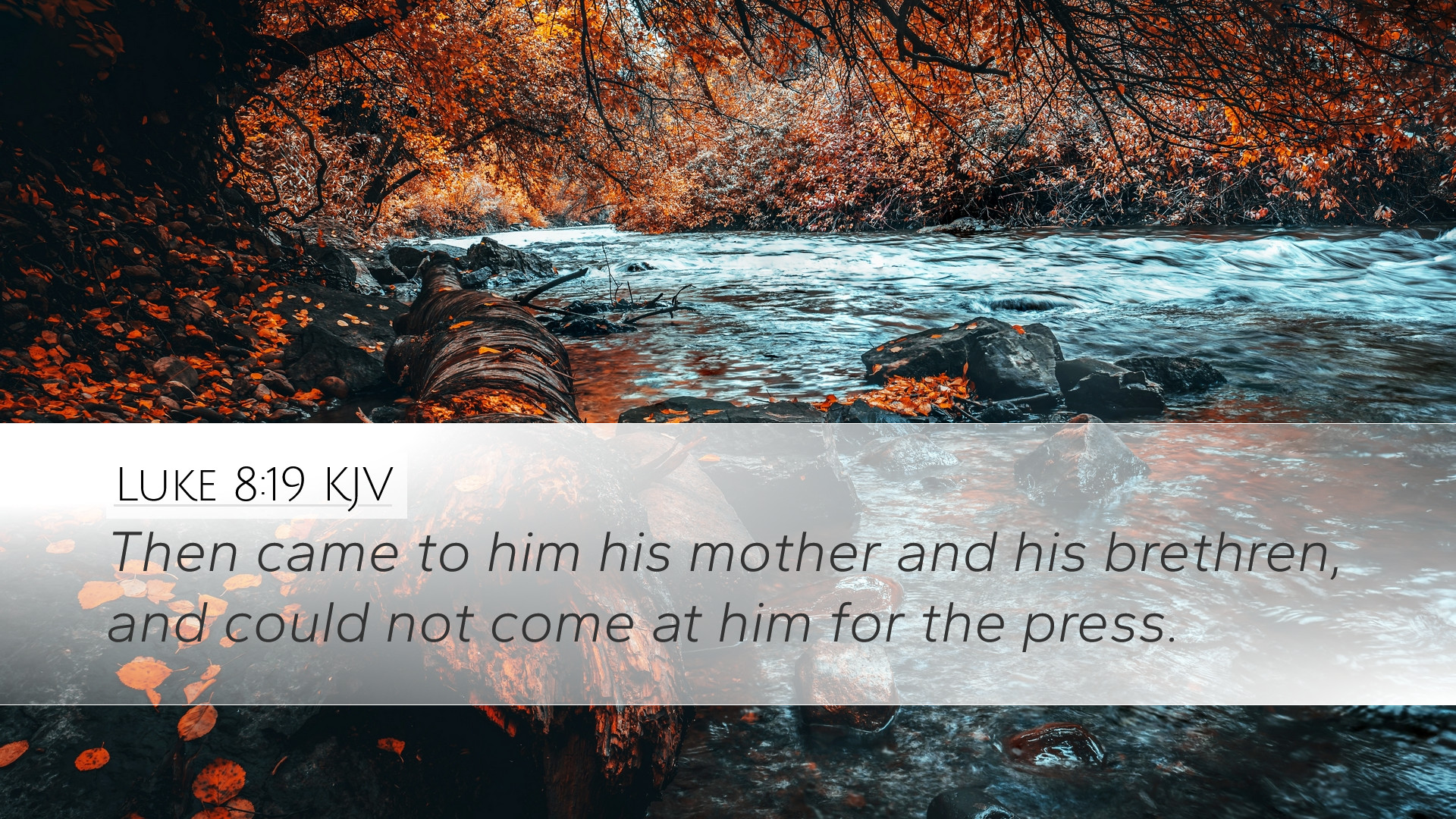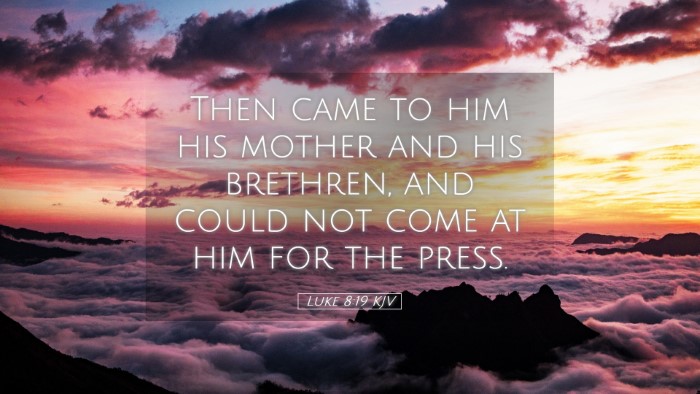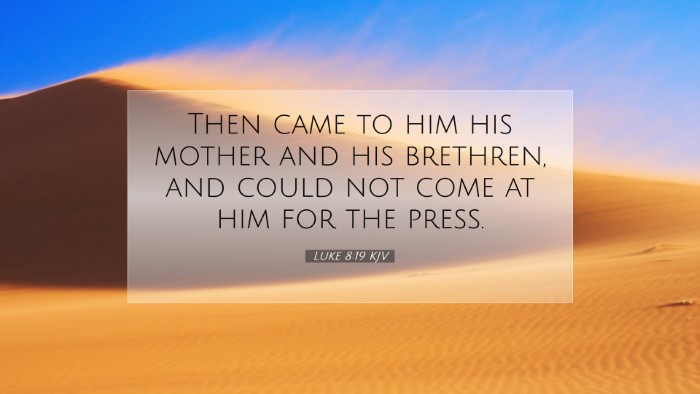Commentary on Luke 8:19
Verse: "Then came to him his mother and his brethren, and could not come at him for the press."
Introduction
Luke 8:19 captures a poignant moment in the ministry of Jesus, where His earthly relationships intersect with His spiritual mission. This verse highlights not only the physical challenges Jesus faced but also the deeper implications of familial ties as compared to spiritual relationships.
Contextual Background
The preceding context in the chapter discusses Jesus’ teaching through parables, including the Parable of the Sower. After a series of miraculous events and teachings, this passage illuminates the tensions that arise as Jesus' ministry grows. The mention of His mother and brethren signifies an important theme: the struggle between earthly ties and the obligations of one's divine calling.
Exegesis and Analysis
Physical Press
The "press" mentioned in this verse implies a throng of people who were eager to hear Jesus and witness His works. Such overwhelming crowds were characteristic of His ministry, demonstrating His popularity and the desperation of the people for the truth and healing.
Family Dynamics
According to Matthew Henry, this encounter illustrates the conflict that arises when earthly relationships compete with spiritual obligations. Here, Mary and Jesus’ brethren seek Him in what can be understood as both concern for His wellbeing and perhaps a misunderstanding of His mission.
Adam Clarke notes that familial connections, though significant, do not supersede the call to discipleship and the establishment of the Kingdom of God. This moment reiterates Jesus' point that His true family consists of those who hear the word of God and act upon it.
Implications for Discipleship
This narrative serves as a profound lesson for modern believers, particularly in the context of discipleship. Albert Barnes points out that true kinship with Christ is defined not by blood ties but by one's willingness to follow Him. In essence, this passage prompts individuals to evaluate their own priorities and allegiances, urging them to align more closely with Christ’s teachings and mission.
Theological Reflections
The implications of this passage are vast for theological discourse. It challenges the inherent human tendency to prioritize familial relationships over divine calling. Throughout the teachings of Jesus, we find repeated emphasis on the radical nature of following Him, often at the expense of familial expectations (Matthew 10:34-37).
Community and Belonging
The verse prompts questions about what community looks like in a theological sense. As Matthew Henry articulates, the spiritual family defined by Christ includes all who obey God’s will—this expands the notion of kinship beyond traditional boundaries, suggesting that the Kingdom of God creates a new order of relationships.
Practical Applications for Pastors and Leaders
For pastors and church leaders, this verse serves as a reminder that their role involves guiding congregations to understand and embrace their identity as the family of God. Albert Barnes suggests that we should encourage members to cultivate spiritual relationships that reflect the heart of Christ's teachings.
- Encourage Spiritual Kinship: Foster environments that encourage congregants to see themselves as part of a larger spiritual family.
- Balance Responsibilities: Help individuals navigate their earthly and spiritual responsibilities wisely.
- Preach on Priorities: Teach about the importance of prioritizing one's relationship with Christ over other relationships that might compete for attention.
Conclusion
Luke 8:19 encapsulates a critical moment in Jesus’ ministry, illuminating the tensions that arise between earthly familial ties and spiritual commitments. As believers, we are called to balance these relationships and understand that true kinship lies in our commitment to God’s word. The insights from public domain commentaries provide a rich foundation for deeper understanding and reflection on discipleship and community within the kingdom of God.


